Ian wrote to ask me:
“How can an English-speaking science graduate link to I Ching?”
Nice question, thanks!
The ‘English-speaking’ part is relatively easy: use a couple of distinctively different, good translations. Don’t be misled by the preoccupations of mad natural linguists (like this one) into believing you have to get into ancient Chinese to connect with the oracle.
And this leads me to one of the things I love about the I Ching. It is open to be explored through any way of thinking. With tarot, for instance, you’ll struggle if you don’t have a good, natural visual imagination. With astrology, I’d imagine you’d need to have a very systematic mind and a yen for calculation. The I Ching offers visual images, poetry, rhythm, metaphysics and metaphor, narrative, structure and system. I was drawn to it first through the poetry and metaphor; pure mathematicians seem to be drawn to the mysteries of its structure.
Perhaps a science graduate might enjoy some of the more systematic ways of building up the meaning of a reading: trigram ‘chemistry’, the harmonic resonances of lines. They give a sense of something ‘reproduceable’ – as if, if you could only mentally encompass the complete structure, you could deduce the meaning of a line without ever having to read its words. (I find that hard to believe – but then I’m more of a words person.)
But then again, perhaps this idea just stems from my misapprehensions about science graduates. Ian’s question intrigued me sufficiently to put it to Yi.
‘How can an English-speaking science graduate link to the I Ching?’
Yi says Hexagram 64, Not Yet Across, changing at line to Hexagram 35, Prospering.
I think the gist of this would be, “by experimenting with the creative possibilities.”
‘Not yet across, creating success.
The small fox, almost across,
Soaks its tail,
Then no direction brings harvest.’
So our newly-qualified scientist, contemplating something as outlandish as a relationship with an oracle, is like a small fox thinking about crossing a frozen river on thin ice. First he was ‘already across’ (Hexagram 63) – he’s graduated (congratulations 🙂 ); he has a very real achievement under his belt; he has some high-quality, shining new mental equipment with which to understand the world. And now he’s thinking about oracles, entering a world where that equipment might be sorely challenged.
From this reading, I’d say Yi takes this challenge and the risk it represents quite seriously. It wouldn’t do the fox any good to plunge forward blindly and fall into the mud. Hexagram 64 is all about preparing for the crossing, becoming more aware of the environment, and testing the ground every step of the way, so as not to get stranded in some impossible position. But also, it’s about constantly moving forward, never resting on one’s laurels – the world always recreated.
I suppose the question might be – if this oracle turns out to work, where will that fit with what he already knows and has achieved?
‘Fire dwells above stream. Not yet across.
Noble one thoughtfully marks out the places for things in the four directions.’
There is the light of clear awareness, the revealer of patterns – and there is dark water within, and who knows how far down or how far in the bottom might be? There needs to be some kind of ordered relation between these things – between understanding and emotion, or between known and unknown, before he can really get to grips with an oracle.
Enticing the small fox onward is an underlying awareness of the possibilities:
‘Prospering, Prince Kang used a gift of horses to breed a multitude.
He mated them three times in one day.’
There are good things to be had here, something fertile and powerful that can lead to great well-being for those who will work with it vigorously. And there’s the opportunity to use his own gifts in new ways.
So how do you explore and enjoy the new possibilities, but without losing your sense of coherence – without some crucial part of yourself being abandoned in midstream?
‘A drag on its wheels.
Constancy, good fortune.’
You put a drag on a carriage’s wheels to control its momentum as it enters the river, or as you go downhill. It prevents the vehicle getting ‘carried away’ and over-running the horses. So this is not saying “Just dive in! Immerse yourself in the experience!” – though that’s the advice I’d typically give to someone starting out with Yi. Instead, ensure you feel in control of the process. Set a limit to the number of readings you do. Consider limiting the subjects you ask about to matters that are not of immense personal importance to you. (Don’t precipitate yourself into a position where you have to decide whether to trust the oracle’s advice on something vitally important.)
What you’re undertaking here is an experiment, and experimental method is something you already know. (For any reader interested in line pathways – I’m imagining the experimental method as the protective, enchanted armour of 35.2.) You don’t have to offer up all your scientific training or convictions on the altar of divination. All that’s asked of you is a simple curiosity and willingness to experiment.
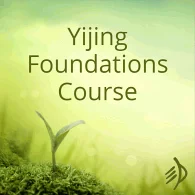
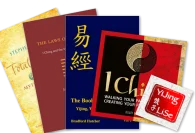
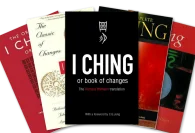
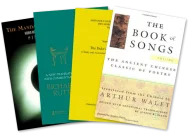
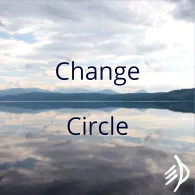
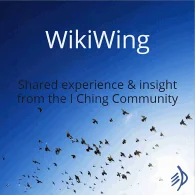
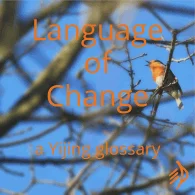
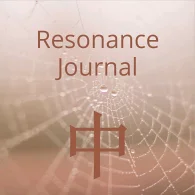
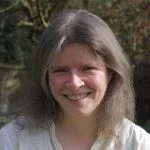
I myself was an English-speaking science graduate when I first took up the I Ching. At first, before I knew what it was, when a friend insisted on doing a reading for me, I rejected it. It didn’t speak to me. Later, I came across it myself in a bookshop and remembered the friend’s attempted reading, that I had not really wanted, but now I found myself more open to discovering what the I Ching was.
I liked to begin things with a clean slate, from the start, with no-one giving me a lift up to their understanding of it. The essence of the dilemma, for a scientist, is this: how could I be sure this friend of mine had sufficiently mastered what he was talking about to be in a position to give me advice? This perhaps shows something of the scientific mindset, which I have never actually discarded in all my study of the Yi. You have to examine everything yourself. That is all your correspondent has to do.
In other words, a science graduate is naturally sceptical of claims made to him that are not based on a rigorous scientific mindset, but if allowed to quietly experiment on his own without having other people’s often stupid beliefs to contend with he is free to discover the nature of the book for himself. And the English-speaking science graduate, if so inclined, may later acquaint himself with Chinese if he thinks it sufficiently worthwhile.
And let us remember that science is not a religion, yet many recent science graduates treat it that way. This is often the route cause of any difficulty they apparently have in connecting with more mystical matters, because they are, as occultists say, ‘confusing the planes’. In other words, judging what is before them by the wrong criteria.
Ha, it is always nice to learn how a like-minded fellow first met the Yi.
Affinity with the Book of Changes is the first step into fellowship of the Yi society, whoever you are or whatever profession you are in.
Treat the Yi with respect, study it earnestly and with sincerity and a link can be made.
Cheerio!
If you have a scientific way of thinking, then I’d suggest a couple of my own papers as a potential place to start. If you have a physics background then “On the Nature of Divination” might give you a different perspective and if you have a mathematical mind then “Boolean Algebra and the Yiying” might resonate with you. Check out:
http://www.yijing.co.uk/papers
The first is in the General Papers section and the second is in the Algebraic Papers section.
There is also a fairly comprehensive set of links on the site that will point to a variety of material from other folk.
All the Best
Good advice! I’m about as mathematically inclined as your average haddock, but I still enjoyed the Boolean algebra work.
hi, i have degrees in Physics, chemistry, mathematics and computer scie ce. I believe that when the western scientists find the real meaning of the universe, they will find an eastern philosopher saying, “What took you so long?”
Is any Western scientist looking for the meaning of the universe? My impression is that they’re more interested in how it works.
I’d been learning with the I Ching for years before I ‘discovered’ the well-documented link between the I’s 64 gua and the 64 codons of the genetic code. There are many in-depth books and studies on this, but for me just that simple knowledge – of consulting an oracle whose pattern is written in my own cells – is an awe-inspiring demonstration of the root oneness of science and spirit.
Enjoy your journeying.